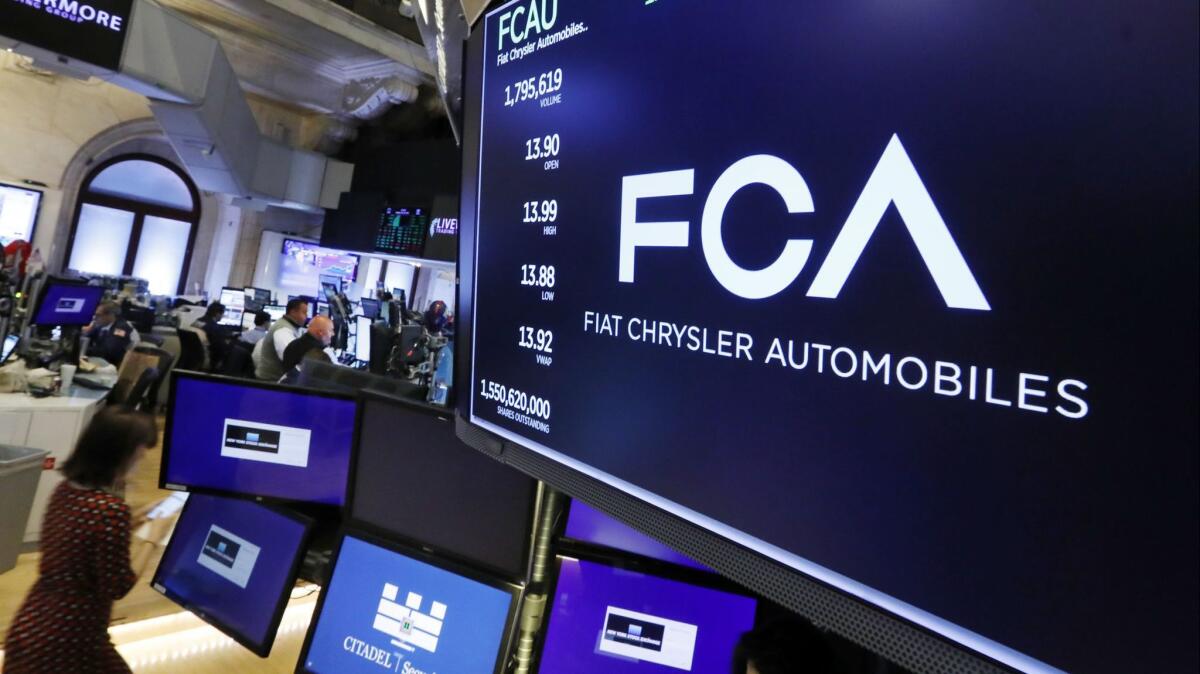Fiat and Renault: a merger driven by industry pressures — and subject to politics

Emmanuel Macron has traded plenty of verbal blows with Matteo Salvini on subjects ranging from immigration to public spending to the future of the European Union.
The Europhile French president and the nationalist Italian deputy prime minister have finally found common ground, however: the car industry. Both have lent their enthusiastic support to a proposed tie-up between Fiat Chrysler Automobiles and Renault.
The idea is that this deal will increase the two companies’ scale and encourage more investment, crucially without hurting jobs.
While this all does look very good on paper, there’s a real danger that the huge pressure on the auto industry that’s brought the French and the Italians together will only intensify over the next few years. That might make the political peace a short one. As we’ve seen with Renault’s alliance with Nissan Motor Co, there’s plenty of scope for diplomatic ructions over cross-border carmakers.
At a time when the industry is bleeding jobs (at least 38,000 over the last six months), it’s easy to see why government ministers are keen on a proposed tie-up with no planned factory closures, a “merger of equals” structure, and $5.6 billion of cost savings. Salvini called it a “brilliant” deal, provided it protected Italian employment, a sentiment quickly echoed by Macron’s finance minister Bruno Le Maire.
While the latter called for guarantees on French jobs, he accepted that the merger would mechanically halve the French state’s 15% stake in Renault. “It’s not every day I agree with Salvini,” he told RTL Radio.
This should be music to the ears of investors; not just the absence of tensions between Rome and Paris, but also the prospect of less politics reflected in the shrinking French holding. As Airbus SA has shown, multinational manufacturers’ shares tend to perform much better once states cut their stakes and reduce their meddling to a minimum.
Macron, a former investment banker, has promised less interference in the private sector but hasn’t delivered much so far.
Unhappiness about Parisian industrial maneuvering was one reason why the Japanese toppled Carlos Ghosn from the top of the Nissan-Renault alliance. The Fiat deal at least gives a clear signal that France is comfortable reducing its influence at Renault, giving up its double-voting rights and offering Nissan a seat on the Franco-Italian entity’s proposed board.
There are reasons to stay cautious, though. This is primarily a defensive deal to help two companies ride out the industry storm (arguably three, if Nissan plays a full part).
Fiat is a laggard in electric car investment and has had to seek outside help in driverless technology. It ranked last among 13 companies for both fuel economy and carbon emissions, according to one U.S. survey.
Renault has greater scale and was an early advocate for electric cars, but its share price has suffered badly because of the tensions with Nissan and cost pressures, so much so that Bloomberg Intelligence says its core business is valued by the market at zero.
Although a merger appears to make financial sense and has cheered investors, it remains a hostage to fortune.
UBS analysts estimate that the merger could boost Renault’s market cap by up to $10 billion, but investors have so far only lifted its valuation by about $2.2 billion. The same epochal challenges facing the two firms individually — driverless vehicles, plateauing car ownership and the death of the combustion engine — will face them combined. All point to fewer industrial workers being needed, which is anathema to Italian populists and French mainstream policymakers alike.
The companies are in the early stages of shuttle diplomacy, so the real political risks will take time to emerge.
It’s not certain that both sides can effectively run the company in a 50-50 structure while avoiding Franco-Italian tensions. French trade unions are already grumbling that the merger will favor Italian interests. And even if Nissan might welcome a watering down of French national interest in a combined company, there’s no guarantee it will look favorably on a new governance structure at Renault-Fiat, which would still own 43% of the Japanese company unless something changes.
If the highly cyclical car market takes another lurch for the worst, expect national interests to come to the fore. As usual.
Laurent writes a column for Bloomberg.
More to Read
Inside the business of entertainment
The Wide Shot brings you news, analysis and insights on everything from streaming wars to production — and what it all means for the future.
You may occasionally receive promotional content from the Los Angeles Times.








